- Home
- Dan Simmons
Hard as Nails jk-3 Page 31
Hard as Nails jk-3 Read online
Page 31
"Sit down," said Kemper. "Keep your hands clasped behind the chair."
Kurtz did as he was told. Kemper walked over to the hospital table by Rigby's bed and set a steaming, Styrofoam cup of coffee on it. He held his Glock on Kurtz as he opened the coffee one-handed and took a careful sip from it.
"You didn't cuff me," said Kurtz. "You haven't read me my rights. You're not arresting me. Yet."
"Shut the fuck up," said Kemper. He lowered the Glock when the nurse bustled in and changed one of Rigby's IV bags, but he kept it in his hand when she left.
They sat there for a while. Kurtz wished he had some coffee.
"I know you're involved in this, Kurtz. I just haven't figured out how."
"I'm just visiting a sick friend, Detective."
"My ass," said Kemper. "Where did you and Detective King go Sunday? She says she can't remember."
"We just took a ride in the country. Talked over old times."
"Uh huh," said Kemper. The black cop looked as if he was trying to decide whether to pistol-whip Kurtz or not. "Where'd you go?"
"Just out in the country," said Kurtz. "Just riding and talking. You know how it is."
"When'd you get back?"
Kurtz shrugged and barely succeeded in not wincing. His shoulders didn't like this posture with his hands clasped behind his back. "Late morning," he said. "I don't know."
"Where'd you drop her off?"
"At her townhouse."
"You want to make this easy, Kurtz? And come down to the station to make a statement?"
"I don't have any statement to make," said Kurtz. He met the cop's glare watt for watt.
"Paul," said Rigby. It was a very weak syllable. She'd just opened one eye.
Kemper slid his dock back into its holster. "Yeah, babe."
"Leave Joe alone. He didn't do anything."
"You sure of that, Rig?"
"He didn't do anything." She closed her eye. "Paul, can you get the nurse. My leg really hurts."
"Yeah, babe," said Kemper. He motioned Kurtz out of the room ahead of him.
Outside the glass wall, Kemper told the nurse on duty at the central station that Detective King needed her eight A.M. pain medication. The nurse said she'd get to it soon. Kemper grabbed Kurtz by the shoulder and pulled him into the short hallway to the lavatories. "I'm going to find out what happened Sunday, Kurtz. You can count on it."
"Good," said Kurtz. "Let me know when you do."
"Oh, yeah," said Kemper. "You can count on that, too."
Kurtz let him have the last word. He turned and walked slowly and stiffly to the elevator.
The goddamned Pinto wouldn't start. Kurtz tried four times—didn't get as much as a click—and then got out of the car and flipped the hood up. It was a simple little engine and a simple little battery, but after checking the leads to the battery and trying the starter again to no avail, Kurtz had used up his complete stock of automotive know-how.
He looked around. The Medical Center parking lot was busy this time of the morning, but no one was paying attention to his little problem. Kurtz fumbled in his pocket for his cell phone, but remembered that he'd left it at Gail DeMarco's place.
"Need some help?"
Kurtz turned and blinked. A huge, orange, and strangely familiar SUV bad stopped. Kurtz didn't recognize the driver or the man in the front passenger seat, nor the one in the far rear seat, but the smiling man leaning out the near window was familiar enough. Brian Kennedy. Peg O'Toole's handsome fiancée. The security service man got out of the… what had he called the armored SUV? Lalapalooza? Laforza… and so did the well-dressed young man in the back with him. Kurtz looked at the two fine suits and realized that he'd have to sell his grandmother to the Arabs to afford clothes like that… and he didn't even have a grandmother.
"Get in," said Brian Kennedy. "Turn it over again, old sport Tom here will fiddle with it."
Tom fiddled, obviously trying to keep his white, starched cuffs from getting greasy. Kurtz turned the key. Nothing happened. Both Kennedy and Tom fiddled some more. People walked by briskly, hardly glancing at the men in the three-thousand-dollar suits fiddling with a clapped-out Pinto.
"There," said Kennedy, brushing off his hands the way manly men did after fixing something.
Kurtz tried again. It didn't even click.
He got out of the car. "To hell with it. I'll go in the hospital and call someone to come get me."
"Can we give you a lift, Mr. Kurtz?" said Brian Kennedy.
"No, that's okay. I'll call."
"At least use my phone to call, old sport," said Kennedy, handing Kurtz a phone so modern that it looked like it could beam a person up to the Enterprise if you wanted it to. "I came to see Peg. Is that why you're here?"
"No," said Kurtz. He flipped the phone open and tried to decide who to call. Arlene, he guessed. He always called Arlene.
"Oh," said Brian Kennedy. "Tom here has a tool that might help."
Kurtz looked at Tom just as the big man smiled, pulled something metallic from his suit pocket, and stuck the ten thousand-volt taser against Kurtz's chest and pressed the button.
Kurtz's last sight was Kennedy catching his expensive cell phone as Kurtz fell backwards into blackness.
CHAPTER FIFTY-ONE
Kurtz became aware of two things as he regained consciousness in the moving war wagon of an SUV. The first was the residual chest pain and overall reaction to the taser blast—his entire body was twitching and tingling, hurting the way a leg or foot hurts after it falls asleep and has to come back to circulatory life. The second thing he noticed was that his headache was gone. Completely gone. For the first time since he'd been shot almost a week earlier.
I should call Dr. Singh at the hospital and tell him about this new therapy for concussion.
"Ah, Mr. Kurtz, I see you're joining us," said Brian Kennedy. "A brief nap for you, old sport, but a restful one, I trust."
Kurtz opened his eyes. He was in the backseat of the Laforza, wedged between Kennedy and the bodyguard who'd tasered him. His hands were handcuffed behind him—real, honest-to-God metal handcuffs this time—and the bodyguard had a semiautomatic pistol wedged in Kurtz's left ribs. One glance told him that they were on the Skyway, Highway 5, headed south past the Tifft Farm Preserve.
"Pierce Brosnan," managed Kurtz.
"I beg your pardon?"
"You look like that James Bond actor—Brosnan," said Kurtz. "I haven't been able to think of his name until now." The headache was gone.
Brian Kennedy showed his wry, curled little smile. "I hear that a lot."
"And you said you were Sean Michael O'Toole's younger brother, too," said Kurtz. "You were only, what? Twenty years old when you sprung him?"
"Just turned twenty-one, actually," said Kennedy with that artificial British accent of his.
"And who did you douse with gasoline and leave behind?"
"No one of any importance, old sport," said Kennedy. "Why don't you rest, Mr. Kurtz? We'll be at our destination in a few minutes. You can chat then if you like."
They exited the Skyway at Ridge Road and took it into downtown Lackawanna. If Kennedy's working with Baby Doc, I could be in a spot of trouble, thought Kurtz.
They continued east on Franklin Street past Curly's Restaurant, past the hole downtown, and parked in an empty lot behind Our Lady of Victory Basilica, just across the street from Father Baker's former orphanage.
"What do you…" began Kurtz.
"Hush," said Kennedy. "We'll chat in a minute. Right now, Edward is going to drape my trench coat over your shoulders and the four of us are going to get out and walk into the basilica together. If you make an untoward move or speak a single word, Edward will put a bullet in your heart right here, on the sidewalk, and you'll miss out on the last five to ten precious minutes of your life. Walk normally and keep silent. Is that understood'?"
Kurtz nodded.
They got out of the SUV and walked the fifty paces or so along the main avenue here,
up the west side of the huge church. Kurtz remembered the hundreds of times his class from Father Baker's had walked from the orphanage school behind them to the basilica for eleven A.M. mass.
The man who'd been driving opened a side door. They came into the basilica under the west staircase where Kurtz and Rigby had climbed to the choir loft that night so many years ago. The small supply room under the staircase where they'd exited the catacombs that night was now chained and padlocked.
Brian Kennedy removed a key from his trouser pocket and unlocked the padlock. "You stay here," he whispered to the driver, who nodded. Someone was practicing the organ in the nave of the basilica.
The supply room's shelves were empty. It looked as if no one used this small space any longer. The stairway to the underground tunnels was behind some white paneling—Kennedy knew exactly where to press to let the wall open—and the old door here was also padlocked. Kennedy used a second key to open this padlock. The other bodyguard turned on a bare light and led the way down the spiral metal stairs. The man named Edward prodded Kurtz in the ribs with the pistol and followed him closely as they descended. Brian Kennedy came last.
There was a final door and a final padlock in the dank space at the bottom of the stairs. Kennedy had a key for this lock as well. All three of them went through into the musty, damp darkness beyond. The bodyguard pulled the heavy door shut behind them.
Kennedy and the first bodyguard pulled out small but powerful halogen flashlights. Concrete steps led several directions down into old tunnels and conduits.
"No one knows why Father Baker put these catacombs under his basilica, old sport," Brian Kennedy said in a conversational tone, words echoing back from the concrete walls and into the darkness. "Rumor was at the time that he wanted some secret passages between what was then the convent and his offices in the orphanage. I, of course, don't believe such scurrilous gossip." He nodded at the bodyguard with the flashlight and they took the left corridor into the darkness.
Kurtz tried to remember the way he and Rigby had come when they were kids. He couldn't.
"You may speak now, Mr. Kurtz," said Kennedy. "I guarantee no one will bear us. No one above could hear even a gunshot from these old tunnels."
"What next?" said Kurtz. There was a half-inch or so of water in this tunnel and the flashlight beams skittered crazily off it Something scurried and squeaked ahead of the light.
"Oh, I mink you know what comes next."
"Why here?"
Kennedy smiled. The smile looked more like a demonic grimace in the harsh glare of the reflected flashlight beam. "Shall we say sentiment? Or it will be perceived that way when they find Detective King's body in the ICU along with your farewell note. I rather enjoyed the discussion you and the detective had about your days at Father Baker's. Very erotic."
"You had the Pinto bugged," said Kurtz.
"Of course."
"And my office, too?" His heart was pounding.
"Ah, well, not quite, old sport," said Brian Kennedy. They came to some steps, went down them, and paused where the wide tunnel branched into two smaller ones. Kennedy pulled a streamlined Palm-type PDA from his suitcoat pocket, activated it, studied a map of blue and red lines, and gestured to the left. The bodyguard went that way and the three others followed.
"Not quite," continued Kennedy. "We knew that if the Gonzagas and your friend Ms. Ferrara joined you there, that they would sweep it for bugs. So we used a dish from a rooftop across Chippewa, bouncing microwaves off your office window, to pick up bits and pieces of conversation. We came late to your war planning session, I'm afraid, but we heard enough."
They came to another junction where steps went up to a small tunnel and down to a broader one. Kennedy studied his glowing PDA. "Down," he said.
Small things squealed and scurried ahead and behind them in the darkness. Their footsteps did not echo because of the water underfoot.
"Rats, don't you know," said Kennedy. "I'm afraid the old catacombs aren't up to the high standards of your youth, old sport. After Father Baker died, those in charge bricked up all entrances and exits in the girls' building, the school, and the main orphanage. I'm afraid that the way we came in is the only access and egress these days—just in case you're considering running."
"I'm not," said Kurtz.
They came into a wider area of the tunnel. "This should do nicely," said Kennedy. The bodyguard turned his flashlight back and pulled a pistol from his pocket. Edward stepped away a safe distance and leveled his Glock at Kurtz's chest.
Kennedy pulled his trench coat from Kurtz's shoulders and stepped back, draping it over his own shoulders. "It's very chilly down here," he said.
"Will you tell me why?" said Kurtz. He'd been fiddling with the handcuffs, but they were expensive and well made and very tight.
"Why what, old sport?"
"Why everything? Why save the Dodger from the asylum and sic him on the Gonzagas and Farinos so many years later? Why use me as an instrument to kill your friends the Major and Colonel Trinh? Why everything?"
Kennedy shook his head. "I'm afraid we don't have time. We have a busy day ahead of us. I have to visit your secretary at her sister-in-law's, and say hello to the girl—Aysha—as well. Edward and Theodore have to stop by the hospital to say hello to Detective King. Busy, busy, busy."
"At least tell me about Yasein Goba before you go," said Kurtz.
Kennedy shrugged. "What's to tell? He was very cooperative, but—as it turned out—a lousy shot. I had to finish the work there in the parking garage. I hated that wig I wore—I never looked good in long hair."
"The police records show you in the air in your private jet at the time O'Toole and I were shot," said Kurtz. "O'Toole's e-mail records show you responding to her e-mail just forty-five minutes before…" He stopped.
Kennedy smiled. "It's a poor corporation that doesn't own or lease more than one executive jet these days."
"You flew in on a second one, earlier," said Kurtz. "You even received and answered O'Toole's e-mail from the other Lear."
"Gulfstream V, actually," said Brian Kennedy. "But, yes. It's amazing how few formalities one has to go through at the private executive terminal out at Buffalo International."
"You shot us and drove out there to sign in as if you'd just arrived. Where did your real jet—Gulfstream—land?"
Kennedy shook his head. "Can it possibly matter now, Mr. Kurtz? You're simply stalling for time."
Kurtz shrugged. "Sure. Just one last question then."
"We searched you for a wire when you were unconscious, Mr. Kurtz. We know you're not broadcasting or recording. You're simply wasting your time and ours right now."
"The stud farm," said Kurtz. "Is that yours?"
"Bequeathed from my father," Brian Kennedy said softly. Rats scurried just around the bend in the tunnel. "In Virginia, actually."
"Poor Yasein Goba thought he was in the hands of Homeland Security and then the CIA, but it was just your Empire State Security and Executive Protection building in downtown Buffalo and then the farm, wasn't it?"
Kennedy said nothing. He was obviously tired of the conversation.
"You never worked for the CIA," said Kurtz. "But your old man did, didn't he? He was the third part of the triad back in Vietnam—with the Major and Trinh. They kept the drugs moving after the war ended."
"Of course," said Kennedy. "Are you just now figuring these things out, Mr. Kurtz? I must say, you're a very poor detective. But you're wrong—I did work for the CIA. For just under a year. It was incredibly boring, so I took my inheritance and started the security agency. Much more interesting. And lucrative."
"And you continued to shake down the Major and SEATCO after your old man died," said Kurtz. "Did they think you were still CIA? Still providing protection the way your daddy had in the seventies and eighties? And now you want it all? Is that it?"
"I'm afraid you've committed the cardinal sin, Mr. Kurtz. You've bored me." Kennedy took three steps back to the edge
of the circle of light. "Edward. Theodore."
The two bodyguards made sure their field of fire was safe and raised their pistols, aiming at Kurtz's chest and head, bracing their weapons with born hands as if they could miss from eight feet away.
"You look like James Bond," Kurtz said to Kennedy, feeling his heart pounding wildly. "But you're making Dr. No's mistake."
Kennedy was no longer listening. "Time to feed the rats, old sport."
The tunnel echoed to the blast of six loud shots.
CHAPTER FIFTY-TWO
Both flashlights dropped and rolled in the shallow water, both ended up with their beams shining opposite directions. The dank air smelled of cordite. Two of the bodies lay still, polished shoes pointing upward. The third body did not move but a strange, terrible whistling came from it.
Kurtz did not move.
The man came silently out of the darkness. He was a tall man, very thin, dressed in a wool suit and a tan raincoat that looked too short and slightly dated. He wore a small Bavarian-style hat with a small red feather in its band. The man had a narrow, strangely kind-looking face, framed by thick, black-rimmed glasses, and had a thin ginger mustache and a slightly prominent lower lip. His eyes looked sad but very alert. He was carrying an unsilenced Llama semiautomatic pistol.
He walked to the first bodyguard, Theodore, stared down at him a few seconds, and then checked the second one, Edward. Both were dead. The man picked up one of the flashlights.
"Three," Kurtz said shakily, mostly to see if he could still speak. "I'll be paying this off in installments for twenty years."
"Not three," said the Dane, turning the flashlight and pistol in Kurtz's direction. "Four."
Kurtz's head jerked up. He braced his feet. "All right," he said. "Four."
The Dane shook his head. "Oh, no, my no. I don't mean you, Mr. Kurtz. I'm speaking of the man Kennedy left at the first door."

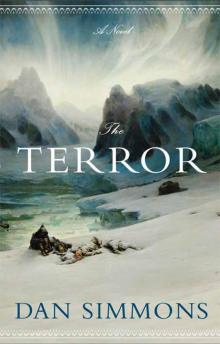 The Terror
The Terror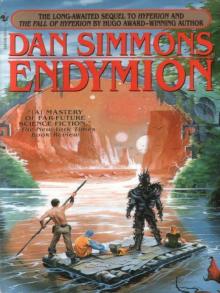 Endymion
Endymion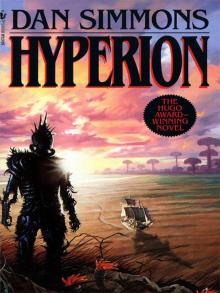 Hyperion
Hyperion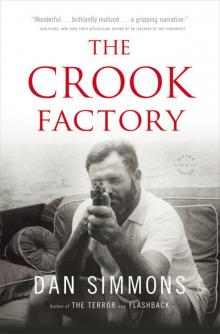 The Crook Factory
The Crook Factory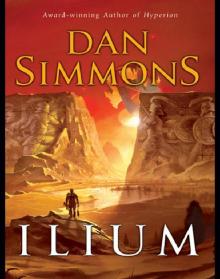 Ilium
Ilium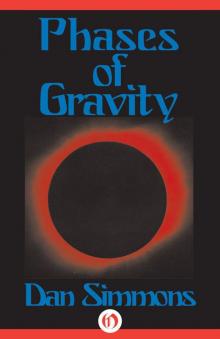 Phases of Gravity
Phases of Gravity Hardcase
Hardcase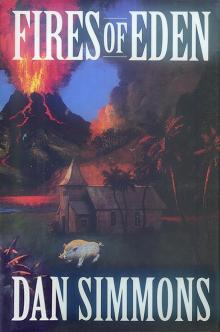 Fires of Eden
Fires of Eden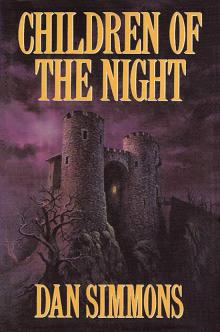 Children of the Night
Children of the Night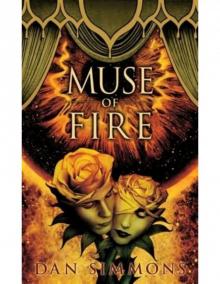 Muse of Fire
Muse of Fire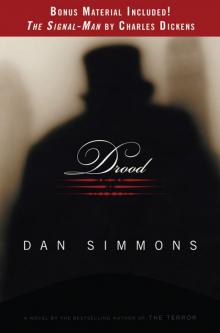 Drood
Drood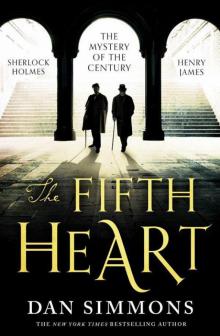 The Fifth Heart
The Fifth Heart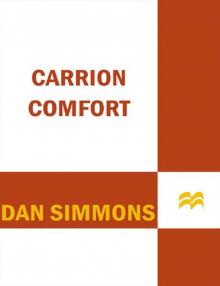 Carrion Comfort
Carrion Comfort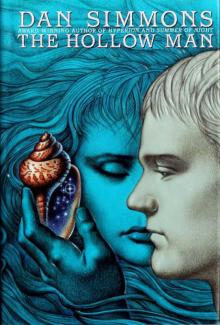 The Hollow Man
The Hollow Man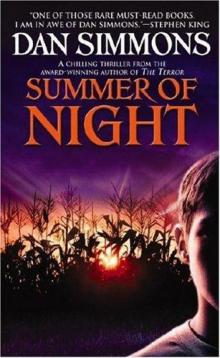 Summer of Night
Summer of Night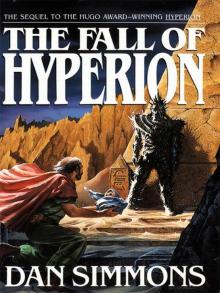 The Fall of Hyperion
The Fall of Hyperion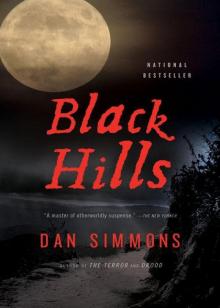 Black Hills
Black Hills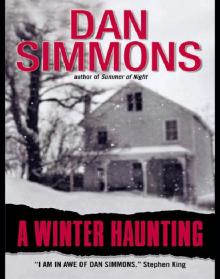 A Winter Haunting
A Winter Haunting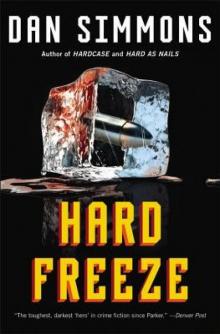 Hard Freeze
Hard Freeze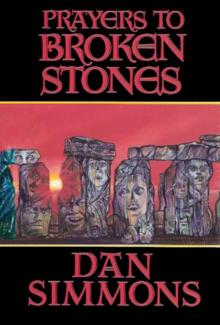 Prayers to Broken Stones
Prayers to Broken Stones Hard as Nails
Hard as Nails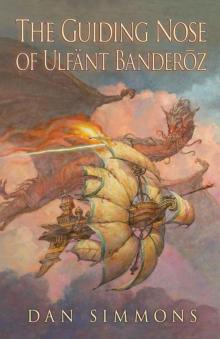 The Guiding Nose of Ulfant Banderoz
The Guiding Nose of Ulfant Banderoz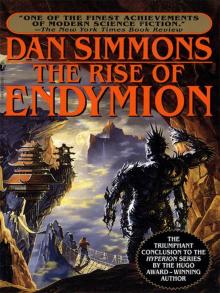 The Rise of Endymion
The Rise of Endymion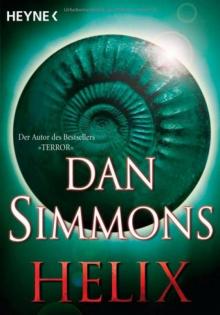 Orphans of the Helix
Orphans of the Helix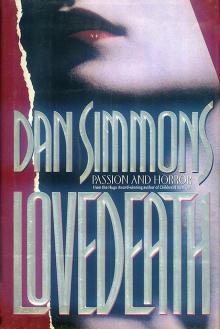 Lovedeath
Lovedeath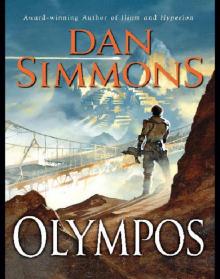 Olympos
Olympos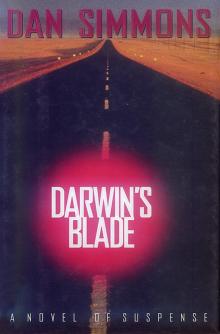 Darwin's Blade
Darwin's Blade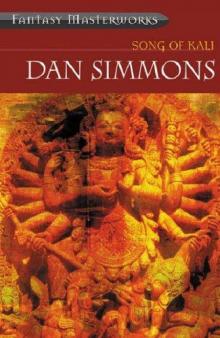 Song of Kali
Song of Kali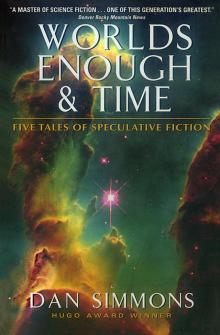 Worlds Enough & Time: Five Tales of Speculative Fiction
Worlds Enough & Time: Five Tales of Speculative Fiction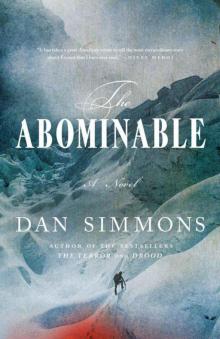 The Abominable
The Abominable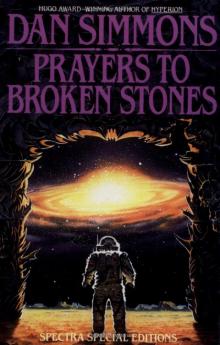 The Death of the Centaur
The Death of the Centaur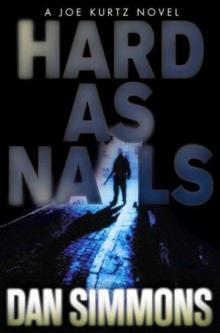 Hard as Nails jk-3
Hard as Nails jk-3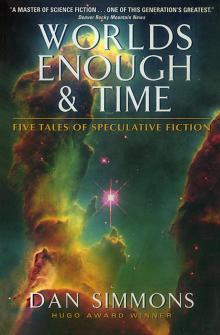 Worlds Enough & Time
Worlds Enough & Time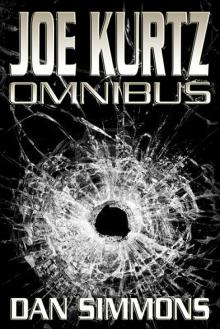 Joe Kurtz Omnibus
Joe Kurtz Omnibus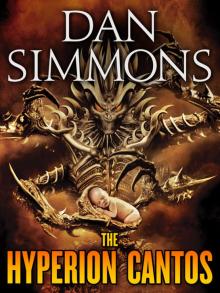 The Hyperion Cantos 4-Book Bundle
The Hyperion Cantos 4-Book Bundle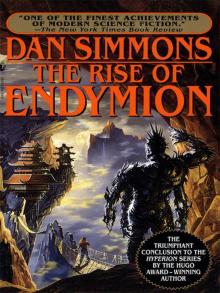 Rise of Endymion
Rise of Endymion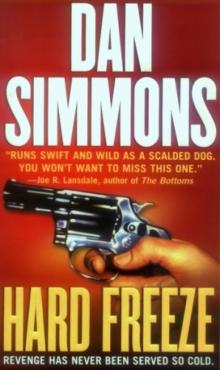 Hard Freeze jk-2
Hard Freeze jk-2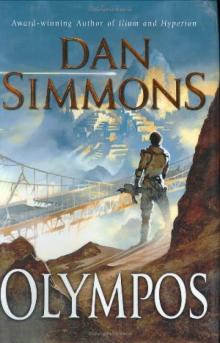 Olympos t-2
Olympos t-2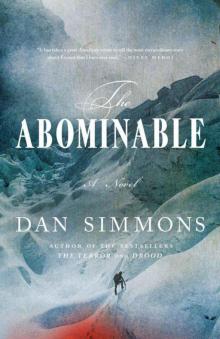 The Abominable: A Novel
The Abominable: A Novel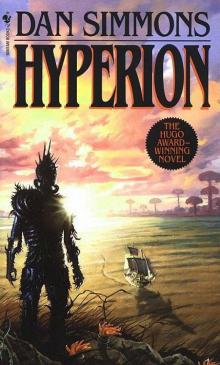 Hyperion h-1
Hyperion h-1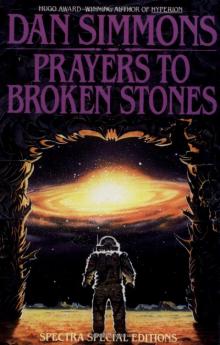 Remembering Siri
Remembering Siri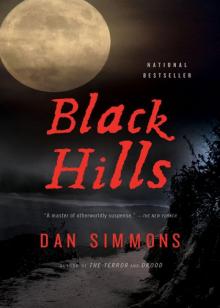 Black Hills: A Novel
Black Hills: A Novel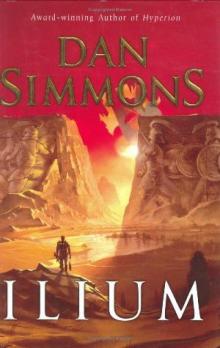 Ilium t-1
Ilium t-1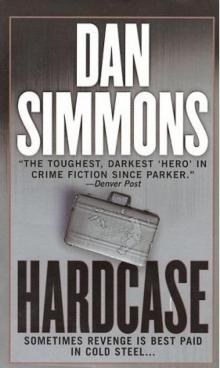 Hardcase jk-1
Hardcase jk-1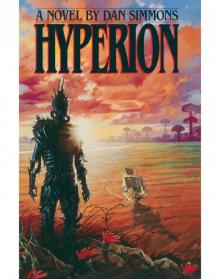 Hyperion 01 - Hyperion
Hyperion 01 - Hyperion